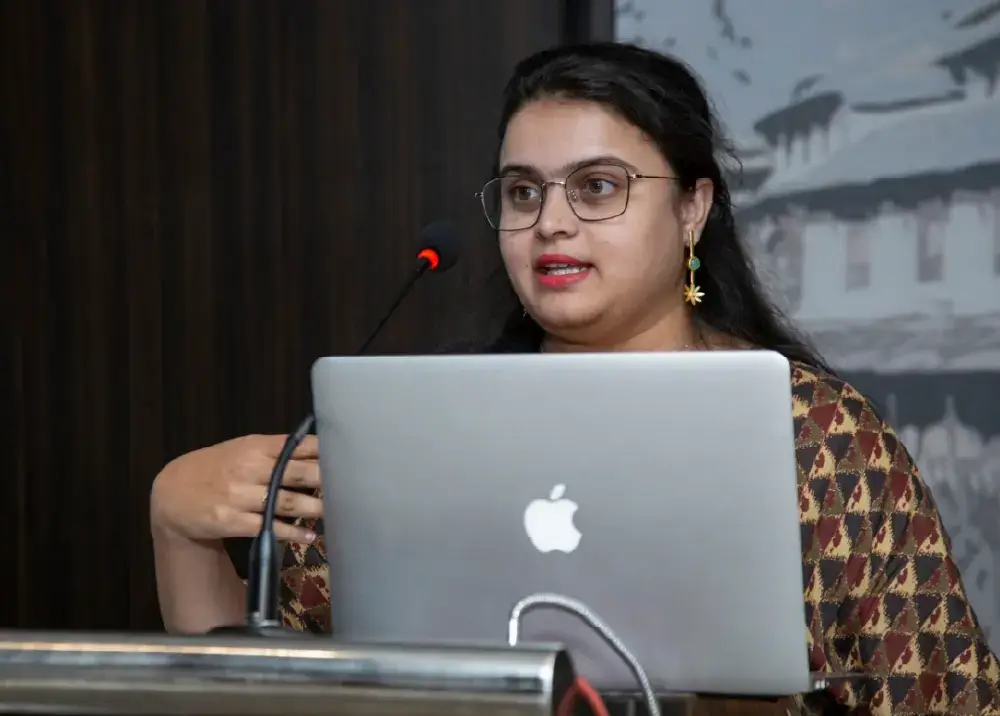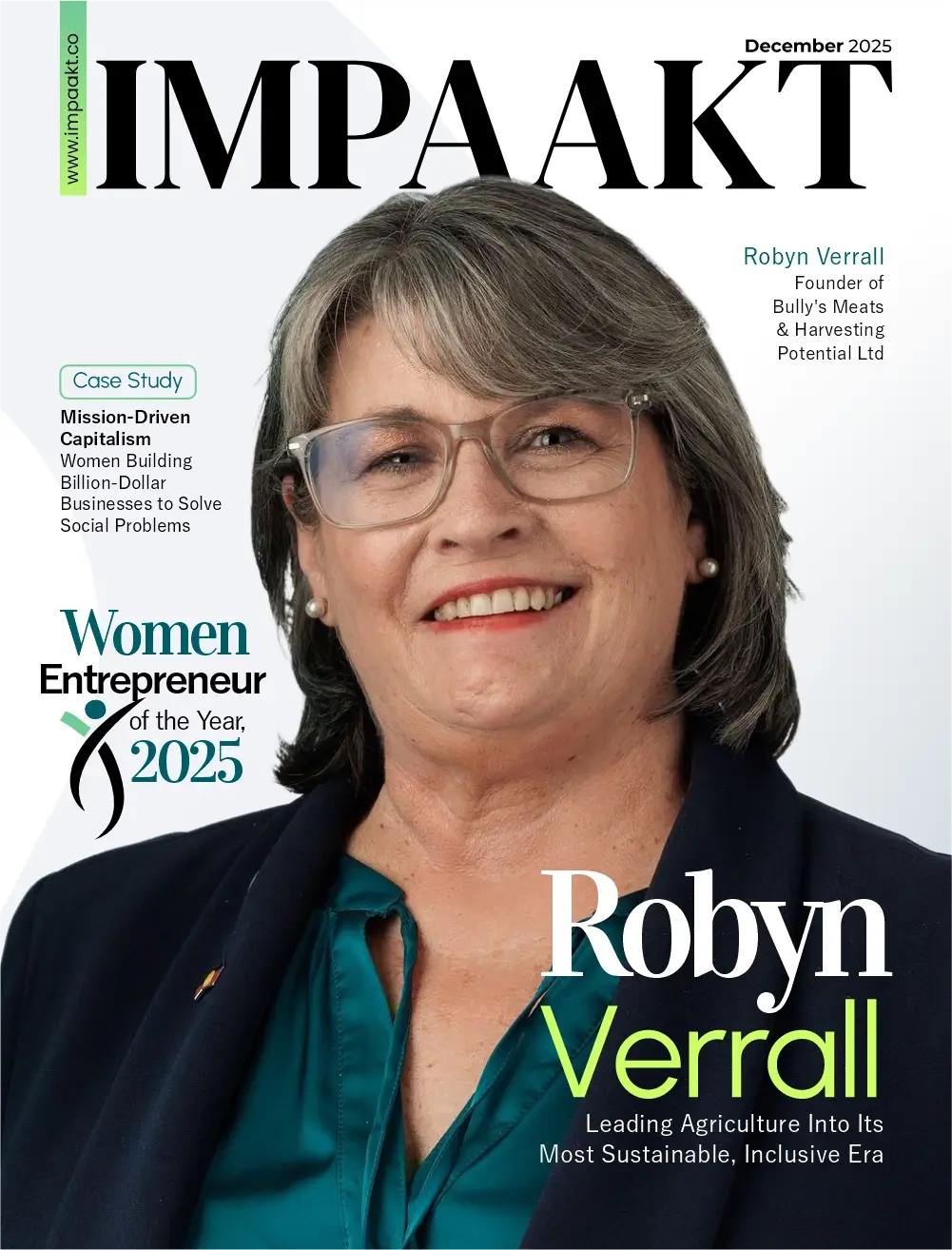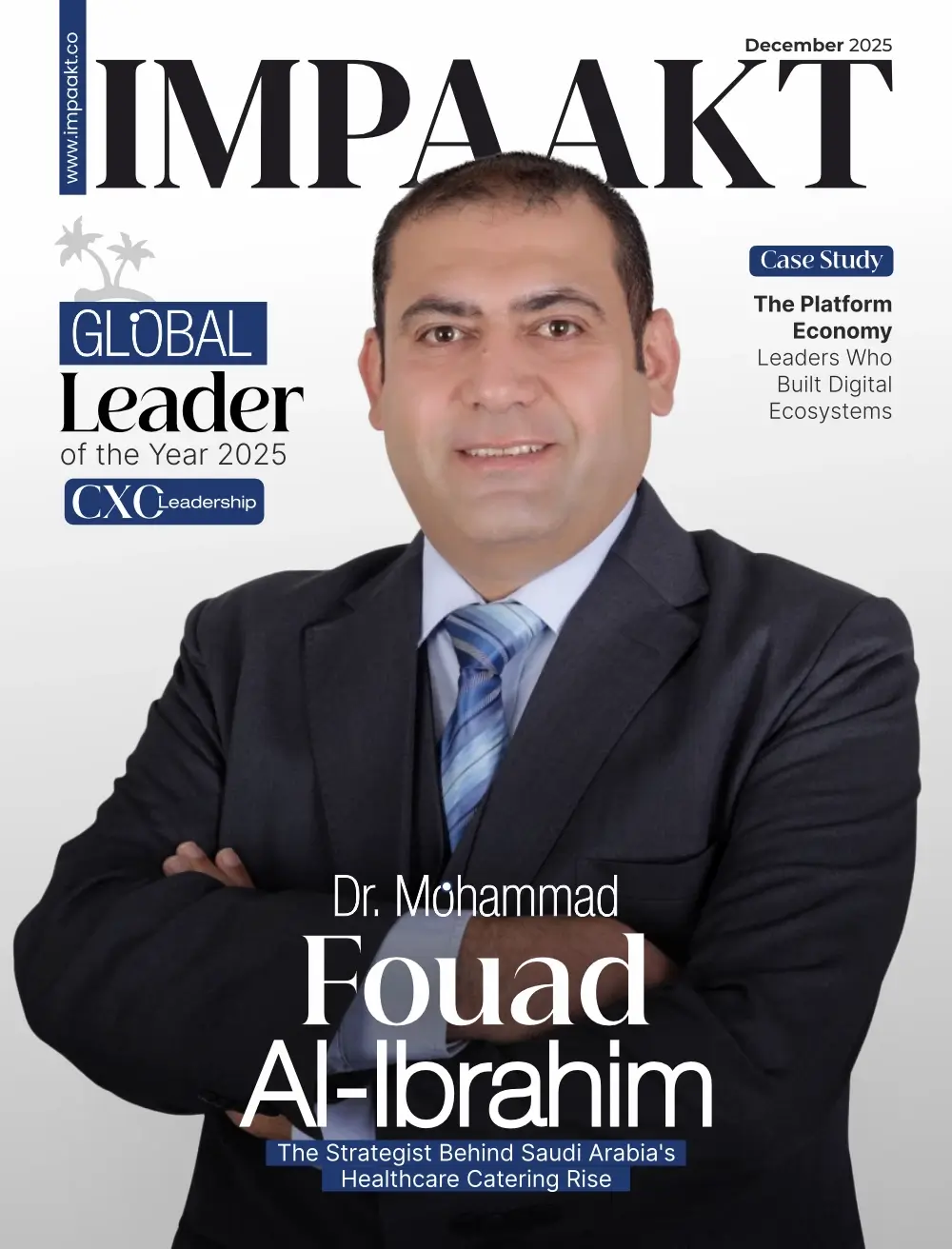The vast expanse of space remains shrouded in secrets and opportunities unknown to many. This is majorly because of the intricacies of policy, security, and international relations around the sector. So, just after the conclusion of Space Week on the 10th of October, we at IMPAAKT, set out on a mission to create a dialogue about the space tech industry. Our mission was clear: we wanted to let the world know that there is a playing field for every aspiring space explorer, a realm of opportunities waiting to be embraced, and a scope beyond the conventional career paths of engineering and medicine.
In our exploration, we crossed paths with Harini Madhusudan, a distinguished PhD Scholar at the National Institute of Advanced Studies, specializing in the School of Conflict and Security Studies with a unique focus on the intersection of science, technology, and international relations. Harini’s extensive academic background and her passionate pursuit of knowledge have propelled her to the forefront of international studies, law, outer space security, and the fascinating world of the Blue Economy.
In the following interview, Harini indulges us into a thought-provoking conversation and unveil groundbreaking insights into the space industry!
Harini, please tell our audience a bit about yourself and what sparked your interest in the space studies.
I’m Harini, a Ph.D. scholar specializing in the militarization of outer space, with a focus on case studies involving India, France, and Japan. My passion for space studies originated during my master’s degree. This curiosity was initially sparked by discussions with my uncle about outer space.
Despite initially pursuing a degree in political science and international relations after high school, my interest in space persisted. During my master’s, I took a course on international law that delved into topics like nationality and refugee crises. It was during this time that I started pondering questions like, “What if someone were born on the International Space Station? What citizenship would they hold? What if someone sought refuge on the International Space Station?” These questions ignited a deeper interest in space-related subjects.
For my master’s dissertation, I chose to explore conflict in space. This research journey led me into a deeper understanding of space, including aspects such as conflict, commercialization, militarization, and weaponization. My background in international relations enabled me to grasp the politics and policy framework of space, making it a niche where I could position myself to better understand space-related issues and develop expertise in the field.
Your current research focuses on “Militarisation in Outer Space” with a case study of India, France, and Japan. Can you share some key insights or findings from your work in this area, especially any developments in 2023?
I have chosen India, France, and Japan as my case studies due to their long-standing presence in outer space while not actively participating in the race to become superpowers in the field. Instead, they form a careful group of space powers, each with a common interest in outer space.
My primary findings reveal that despite all three cases focusing on militarization in outer space at different points in their geopolitical histories, India, France, and Japan have recently taken steps to institutionalize their military space domains. This shift demonstrates a more organized approach to security in outer space, emphasizing the growing significance of space as a contested domain.
Additionally, these three countries, although they have a significant presence in space, are not part of the space race to superpower status. Their new form of realistic institutionalism highlights the individualistic approaches they are taking in their space investments.
In my research, I am also tracing the evolution of militarization in outer space and identifying the current stage in the militarization process. I am further exploring how these developments align with the theories and policies of international relations.
You have recently worked as a visiting researcher at the Center for Air Power Studies focusing on sustainability in space. Could you elaborate on the importance of sustainability in outer space and its relevance in the context of space explorations?
In 2020, we witnessed a notable expansion in space exploration, particularly with the advent of satellite constellations in outer space. This proliferation raised concerns about the overcrowding of orbital space and the looming threat of a Kessler syndrome, a scenario where one satellite collision could trigger a domino effect of collisions, potentially leading to a doomsday situation in outer space.
Consequently, international discussions began to address these challenges and promote space sustainability. My interest gravitated towards this vital topic. I approached sustainability in two facets: first, in terms of managing terrestrial resources required to support the space industry, and second, in terms of safeguarding the investments in outer space to protect against threats. This included managing territorial resources, space traffic, situational awareness, and international cooperation in responsible behavior.
Additionally, I emphasized the need to investigate the largely understudied field of space weather in outer space, as it presented a significant aspect of sustainability. My research on these topics was conducted within the Center for Air Pass Studies, where I had the privilege of learning from experts with extensive experience in the space industry. Their mentorship played a pivotal role in advancing my understanding and research in the realm of space sustainability.
How do you see the field of international law intersecting with outer space security, particularly with regards to the challenges, opportunities facing space exploration in this current role?
There has been an ongoing debate about the relevance of the Outer Space Treaty, and I agree that it needs a fresh look. While the treaty has been effective in maintaining a peaceful focus on space exploration, it didn’t anticipate the significant role of the private space industry. The law now needs to address issues like insurance policies, collaborative efforts, resource ownership, and liability in the context of private space activities.
Furthermore, there’s a growing need to prevent the weaponization of outer space and ensure responsible behavior. While the foundational Outer Space Treaty still applies, revisiting it would be beneficial. There are non-binding frameworks like the Wumera manual and newer manuals that guide countries in their actions. The momentum for reevaluating international space law is building, but there’s still ambiguity, especially concerning issues like espionage, spying, denial of access, and jamming. Addressing these concerns is crucial for ensuring safety and security in the coming years.
The concept of the “Blue Economy” is one of your areas of interest. How do you envision the role of space exploration in contributing to the sustainable development of ocean-related industries and ecosystems in 2023 and beyond?
The idea of applying space capabilities to the blue economy, which focuses on the sustainable use of oceans and resource extraction, has been on my mind for a while. Space-based surveillance, communication, and navigation already play a crucial role in ocean-related industries. However, challenges arise when it comes to exploring the deep seas, mainly due to communication and navigation dynamics underwater.
While we’ve made significant progress in space exploration, the same success hasn’t been realized in deep-sea exploration. This disconnect presents a unique challenge in applying space technologies to ocean industries, especially beneath the ocean’s surface.
I initially considered exploring the relationship between space capabilities and global maritime needs for my PhD thesis. Still, I found that this area is largely uncharted, requiring more time, resources, and a broader focus to address the intriguing questions about the blue economy and the potential of space technology in advancing ocean exploration.
Do you think there is a possibility of resource exploitation in the deep oceans, and if advanced technology enables deep-sea exploration, should we pursue the extraction of untapped resources from these regions?
I’m a strong advocate for exploration, and I believe in the importance of discovering new frontiers, especially when it comes to exploring the oceans. Many research experiments and exploration missions have been undertaken to uncover the resources present on the ocean floor or seabed. While there have been some successful efforts, there’s still ongoing work to understand the vast resources hidden beneath the ocean’s surface.
Regarding the ownership of these resources, there is a legal framework, such as the Law of the Sea, which governs the claiming of ownership. To my knowledge, if you explore a particular area for research purposes, you may be able to claim ownership of the resources. However, I would advise consulting a maritime expert for a more precise understanding.
Furthermore, there are established legal systems in place, like the International Seabed Authority (ISA), that regulate how international relations will function once we make remarkable discoveries in the seas. This still remains a subject of concern, but I believe we should continue to explore and unlock the potential of what lies beneath the ocean’s surface. As someone deeply engaged in research and academia, I am particularly enthusiastic about these possibilities.
As someone deeply involved in research and academia, what role do you believe education plays in inspiring and nurturing the next generation of space explorers and advocates?
Education has played a pivotal role in my journey. It’s been a driving force behind my curiosity, which transcends domains. While I briefly shifted from science to arts and policy, my fascination with space, nuclear technology, and the oceans persisted. Fortunately, I’ve been able to integrate these interests into my current research and academic pursuits.
Meeting the right people and receiving guidance have transformed my educational experience. In the world of a Ph.D., it’s like holding a compass and navigating the industry alone. While it’s not necessarily a challenge, it’s your passion and curiosity that propel you forward, especially in a multidisciplinary field like mine, which involves science, policy, international relations, and security.
I’ve had to reach out to scientists, government officials, corporate leaders, defense experts, and academics to seek knowledge and guidance. Education, combined with a curious mindset, has been instrumental in my journey. However, the onus is on us to take the initiative and reach out because, in multidisciplinary fields, there’s no single source for all your research needs.
Additionally, having a broad-based focus on subject areas like space and maritime has been beneficial. Education has instilled in me the importance of exploring various dimensions and perspectives, which is crucial in my field.
You’ve mentioned your analytical skills as one of your key strengths. How do you apply these skills in your work, especially when addressing complex issues such as space security and international relations?
There are two key steps to enhancing analytical skills. Firstly, it involves dedicating time to practice and learn through experience, allowing you to strengthen your analytical abilities. Secondly, seeking input and criticism from others is crucial. This process has significantly contributed to the development of my own analytical skills.
I’ve made it a habit to write essays and scenarios, which has been particularly beneficial. These exercises challenge me to explore different issues and scenarios, allowing me to refine my analytical thinking. Additionally, formal training in research methodology and building frameworks, which I received during my academic courses, has been instrumental. It teaches you how to comprehensively cover a topic while also knowing when to limit your study.
In my educational journey, I’ve also taken courses that delve into the complexities of various issues and teach how to effectively write about them in different styles. These courses have greatly enhanced my analytical skills.
Furthermore, when I write, I consider what the reader or audience would want to know. I create a mental map of the information that should be included to provide a comprehensive perspective. This approach ensures that I cover all the necessary angles.
In my four-year Ph.D. journey, I’ve had the opportunity to engage in intensive practice, which has further honed my analytical skills. Analyzing complex subjects like space often requires a multidisciplinary approach, and my institution, NIAS, places a strong emphasis on multidisciplinary research, helping to build a solid foundation for analytical thinking.
Looking back on your educational journey from Christ University to your current doctoral research, how have your academic experiences shaped your passion for space exploration and international security?
My educational journey has been instrumental in introducing me to the intricate connections between politics, policy, the space industry, science, and diplomacy. During my master’s experience at Christ, I learned how to identify subject areas and build perspectives, laying a strong foundation for my future endeavors.
Subsequently, my time at NIAS further expanded my horizons. It provided opportunities to work on diverse projects and was incredibly supportive of my ideas and interests. NIAS facilitated my participation in discussions and conferences, connecting me with experts in the field.
Both Christ and NIAS have played pivotal roles in my academic and professional growth. They have provided a nurturing environment that encourages dialogue, exploration of ideas, and one-on-one interactions with experts, thereby opening multiple doors for me to pursue my interests and aspirations.
During your time as a Research Associate at the International Strategic and Security Studies Programme, you likely gained valuable insights into strategic studies. How has this experience influenced your approach to studying outer space security?
The International Strategy and Security Studies program had a particular focus on space and various domains related to defense, such as space nuclear technology, maritime security, cybersecurity, and artificial intelligence. Before beginning my Ph.D., I spent a year working with them.
During my time with the International Security Studies program at I triple SP, I learned essential tools for delving into the domain of security studies. This was crucial because in the realm of security studies, you often deal with classified information and need to employ specific methodologies. They taught me how to discern the truth from information available in the public domain and how to approach studies from different perspectives.
This research associate experience significantly broadened my approach to security studies. Moreover, since the program had former employees of ISRO (Indian Space Research Organization), I had the privilege of receiving insights and guidance from experts who were well-versed in space-related matters. This invaluable input helped shape my understanding of the space domain.
As we look to the future of space exploration, what do you see as the most exciting and promising developments or missions on the horizon for 2023 and beyond?
This year, two of the most exciting missions were Chandrayaan 3 and Aditya. Globally, there have been noteworthy missions, including those from the US, Russia, South Korea’s successful mission, and North Korea’s attempt at a military satellite. India’s upcoming moon landing missions are generating enthusiasm, as they bring new exploration ideas and a different level of passion.
Additionally, there’s a growing focus on space tourism and space hotels, with the possibility of a space hotel near the International Space Station in the next 4-5 years. The space industry is also addressing crucial issues like debris mitigation, with robotic arms being developed to remove threats to satellites. Successes in this field are expected in the coming years.
Furthermore, plans are in motion for the establishment of a Lunar research station, offering a promising prospect for space enthusiasts.











